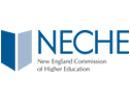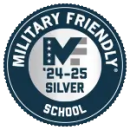Complete MKTG-115
Explore Marketing Management
Develop in-demand marketing skills and knowledge through Champlain’s online Marketing Management degree. Our project-based, experiential online degree in marketing program provides you with hands-on, applied practice in the essential business and marketing strategies needed to plan, create, implement and measure successful marketing campaigns for brands and organizations.
Build your marketing knowhow through marketing degree coursework in marketing research, consumer behavior, digital marketing, and integrated marketing communication, as well as business development and sales and business management as you create marketing plans, engage in digital marketing audits, research and develop buyer personas, practice inbound marketing and sales techniques, and identify opportunities for integrated campaigns that will connect brands to their consumers.
Gain further experience in the areas of marketing you are most interested in by selecting electives in this online marketing management major that includes Branding, Digital Marketing Analytics and Social Media and Community Management.
Learn how to finish your program faster with credit for prior learning and experience.
Build Your Career Future
Graduates with a marketing management bachelor’s degree are positioned for marketing roles in a number of industries. Career paths to pursue can include marketing associate, market research analyst, digital marketing specialist, business development representative and marketing and sales associate.
Program Curriculum
Learn more about Champlain's 100% online marketing management bachelor's degree, designed for working professionals.
24 Credits Core Courses
18 Credits in Business Foundations
- 3 Credits Intro. to Business
- 3 Credits Accounting
- 3 Credits Business Law
- 3 Credits Economics
- 6 Credits from finance, MIS, or analytics
3 Credits in Video Storytelling or Digital Design
15 Credits in Advanced Marketing Courses (level 300-400 marketing courses)
18 General Electives
42 Credits General Education Courses
This course introduces the core terminology and principles of marketing. Students learn about the marketing mix (product, price, place, and promotion), market segmentation, and how external factors such as the economy, technology, culture, and competition influence marketing decisions. The course also examines how marketing fits within an organization and contributes to business success, along with how ethical considerations, cultural awareness, global trends, and social responsibility shape marketing practices across industries. No prior business experience is required.
This course explores the psychological and behavioral factors that influence consumer decision-making. Through a combination of theoretical and applied approaches, students will examine how individuals acquire, process, and use information to make purchasing decisions. Topics include the impact of social and cultural factors on consumer behavior, the role of emotions in decision-making, and the effects of marketing and advertising on consumer choices. Students will apply their knowledge of consumer behavior to the development of buyer personas for an organization.
Prerequisites
Marketing research is critical to informed marketing decision-making. In this course, students explore quantitative and qualitative marketing research methods, with an emphasis on ethically-grounded practices such as informed consent, privacy, and data security. The course also examines the impact of emerging technologies, including AI and machine learning, on the marketing research process. By the end of the course, students will have developed the skills to design effective, ethical marketing research plans and propose data-driven recommendations to support marketing strategy.
Prerequisites
Complete MKTG-115
Students will learn how to nurture and identify qualified leads and how to turn those leads into returning customers as they examine the role of sales and business development in the organization. Through role-play activities students will experience the sales process, as they practice how to overcome objections. Students will assess their own sales style and will earn industry standard sales certifications.
Prerequisites
Complete MKTG-115
This course will provide an overview of digital marketing strategies and techniques for organizations operating in a digital environment. Students will learn about consumer behavior in digital spaces as well as tactics including search engine optimization (SEO), pay-per-click (PPC) advertising, email marketing, social media and content marketing and analytics. Students will apply what they learn to the development of a digital audit and recommendations project for an organization. Additionally, students will earn several industry certifications as part of their coursework.
Prerequisites
MKTG-115
This course explores the planning, execution, and evaluation of integrated marketing communication strategies. Students will learn how to create comprehensive campaigns that combine advertising, public relations, sales promotion, and digital media to achieve business objectives. Topics include consumer behavior, message development, media planning, and measuring campaign effectiveness. Students will apply what they have learned to design a strategic IMC campaign including the development of a positioning statement, big idea/theme, message strategy, media plan, and evaluation plan.
Prerequisites
Complete MKTG-115
In this capstone course, students undertake an individual project, aligning it with their marketing expertise. They will examine ethics, personal values, and conduct self-assessment for career progression. A robust peer-review process aids in assessing strengths and refining career goals. Students will build an active, career-focused network, publish original content demonstrating marketing knowledge, and express a commitment to ethics and integrity through a values statement.
Prerequisites
Complete all appropriate program requirements prior to enrolling in the capstone.
This class is designed to provide students who have little or no digital video production knowledge with an introduction to methods and strategies for production of digital video stories. Using the art of telling a story, the class will create educational, informational or personal experience video productions utilizing audio, video, storyboard, scriptwriting and digital editing techniques
This course introduces students to the fundamental language of visual form and basic skills including the industry-standard software applications used to create, acquire, and manipulate digital images. Students will learn about two-dimensional composition and design, color theory and terminology, and will apply these principles to a variety of basic design projects. Color, form and content will be explored in terms of cultural, psychological, physiological, and historical aspects.
This course offers a holistic approach to designing promotional materials that effectively communicate brand messages across digital and print media. Students will learn essential design elements and apply branding considerations to various formats. Through practical assignments, students will conceptualize, design, and produce a range of promotional materials while learning approaches to effectively work with design and production teams and following industry-standard practices. Some basic art supplies will be required.
In addition to the following courses, please complete one 3-credit General Education Elective by choosing a course from the following:
- ARTS
- COMM
- CRIM (except CRIM 225)
- CRIT
- ENGL
- HIST
- MATH
- MKCM 120
- PHIL
- PSYC
- SOCI
This course introduces students to the foundational concepts needed to communicate effectively in writing for academic study and professional development. Students will also learn to read critically to evaluate an author's message. Students will be introduced to rhetorical modes and their role in the development of written communication. Students will also learn how to use revision strategies to create written communication that meets its intended purpose for its intended audience
This course builds on students' proficiency in the writing process and rhetorical modes to introduce the use of sources in written communication. Students will practice information literacy as they learn to determine information needs from sources, develop effective search strategies, and incorporate sources in written communication, legally and ethically.
Prerequisites
Complete ENGL-100
Starting with a frame of human communication as a dynamic system of interactions in which people make choices that impact their relationships, other people, and themselves, students will define theory-informed communication concepts and processes, and critically examine how they apply to everyday life across a variety of contexts. Students will reflect on how the theory, concepts and processes apply to their own lives in becoming competent communicators who are knowledgeable, skilled, and versatile.
This course examines the principles of effective small group interaction. Students will analyze group development stages and small group roles. They will identify and evaluate communication skills that enhance small group cohesion and problem-solving. Students will explain how conflict affects group processes and compare face-to-face versus digital collaboration environments. These skills prepare students to participate effectively in group settings across academic, professional, and community contexts.
Students will learn and apply critical inquiry skills to analyze persuasive communication created by others and to develop persuasive communication/arguments of their own to solve problems in professional, civic, social, and personal contexts. Specifically, students will learn to recognize fallacies in logic; apply inductive and deductive reasoning strategies to the interpretation and development of persuasive communication; evaluate the validity of sources; and develop logically sound persuasive communication. Students will explore the roles of self-awareness, empathy, and ethics in the context of critical inquiry and the development of arguments.
Prerequisites
Complete ENGL-110.
This course is an historical overview, and examination of the evolution of digital, film, and print media, and their functions. Students will identify and analyze contemporary problems of the media such as the legal, social, economic and psychological implications of their relationships with society. They also will examine the ways in which marketing and PR professionals utilize the mass media channels to reach their intended target audiences.
This course explores the complex and evolving relationship between human beings and technology. Through a multi-disciplinary approach that draws on fields such as sociology, psychology, philosophy, and history, students will examine the ways in which technology has shaped human culture, identity, and values, as well as how humans have influenced and continue to influence the development, adoption and use of technology.
Mathematical reasoning, when applied to everyday and professional lives, has two dimensions: logic for deterministic situations and probabilities for non-deterministic situations. This course aims to help students develop these mathematical reasoning skills.
This course introduces students to basic statistics for data literacy. With a focus on exploring real-world data, students will interpret numerical information and utilize the tools necessary to complete the entire statistical process: designing a study; gathering, organizing, and analyzing sample data; and making inferences about a population. Students will demonstrate data-driven decision-making and effective communication of numerical data.
This course covers the fundamental concepts of linear algebra and analytical geometry, including matrices, vectors, linear transformations, and systems of linear equations. Students will also explore the analytical geometry of Euclidean spaces, including lines, planes, circles, spheres, and conic sections. In this course, students will develop their mathematical reasoning skills and learn how to apply these principles to solve real-world problems.
Introduces students to the biochemistry and physiology of nutrition and exercise. Emphasis will be placed on human body systems such as musculoskeletal, digestive, respiratory and circulatory, and their relationship to nutrition and fitness. Students will also study the biochemistry of energy conversion as it relates to exercise physiology. Laboratory sessions are designed to reinforce, by a hands-on approach, the principles discussed in lecture. Course includes two laboratory hours per week.
Students will develop the ability to apply scientific methods to understand the natural world, to identify scientific aspects of daily life, and to evaluate the quality of scientific information based on its source and the methods used for its generation.
This course will introduce students to major streams of social justice thought, including historical social justice movements, theoretical problems having to do with social equality, personal freedom, marginalization, and stigmatization, and the ways in which civic and professional communities respond to these issues.
With pressure and release, a window opens and closes, recording light on a sensor. The simple action captures the instinct, judgement, and skill of the person behind the lens. This class will begin a study of the art and craft of photography. Students will develop their vision and their understanding of how to achieve it. Solid skills will be learned and many doors will be opened.
A survey of the continuing change experienced in art since the 15th century. Students will examine how an image is achieved as well as the significance of the subject represented. Individual inquiry concerning the nature of art is encouraged.
Students learn to appreciate films through the critical analysis of various elements of mise-en-scene, cinematography, editing and sound. The course introduces the conventions of classical Hollywood cinema, considers the work of one major director (auteur), and surveys selected international and independent films. Students view and discuss films each week.
Students in the course will explore the cultural history of the music genre broadly referred to as rock. Students will explore the social, economic and political contexts that are influenced by and that influenced each style in the United States. By listening, watching, reflecting upon, discussing and writing, students will explore how music takes on meaning, personally, and culturally. Topics and themes include the relationships between and among gospel, country, funk, folk, disco, rap and hip hop; the role of business and technology in those relationships, and political or transgressive elements of rock music.
Specific application of common tools for writing in the working world. Students will be instructed in rhetorical strategies of professional writing including style, report formats, editing, document design, and integration of visual aids. Students will complete a semester-long writing project; oral and written reports associated with the process of problem-solving within the project will be included.
Prerequisites
ENGL-112 or COR-125
Students will learn how to create conditions for successful conflict engagement, a necessary skill for any professional. The course focuses on the foundational capacities to remain calm and connected with oneself and others. In this state students can access helpful ideas and responses and be their best selves regardless of environment. Improving facility for conflict creates stronger relationships and reduces fear. By the end of the course, students will understand that disagreement and difference can become a source of personal and interpersonal growth.
In this course, students will explore and apply writing principles and techniques to effectively interpret and write technical workplace materials. Students will enhance and gain skills to communicate business and technical information by producing instructions, describing processes, applying document design elements, creating and integrating illustrations, researching and writing proposals and formal reports, and presenting content for decision-makers.
This course introduces students to the fundamentals of substantive criminal law. With this foundation for understanding the legal system students will identify the essential elements of crimes, including the criminal act, criminal state of mind, and jurisdiction. They will examine the rationale underlying criminal law, factors affecting criminal responsibility, and legal defenses. By analyzing real-world scenarios, students will develop skills to distinguish lawful from unlawful actions and prepare for advanced studies or careers in criminal justice.
This course focuses on the rules and procedures governing how the American criminal justice system must process individuals suspected, accused, and convicted of law violations.
In this course, students will explore the theory and fundamentals of criminal investigation, emphasizing practical applications for evidence handling and case development. Students will review basic responsibilities of investigators and protocols for report writing, evidence collection, and preparation of cases for trial. The curriculum examines investigative approaches for various crime categories, including violent offenses, property crimes, terrorism, and hate crimes, while introducing comparative perspectives from diverse legal systems.
Prerequisites
Take CRIM-120.
Principles of Economics introduces the fundamental concepts of economics - the study of how people manage resources, and how they react to scarcity. This course focuses on both microeconomics (the behavior of consumers and companies) and macroeconomics (large-scale economic factors such as employment and interest rates), so that you'll gain a broad understanding of how a modern market economy functions, how decisions in business settings are informed by economics, and how economics applies to your everyday life.
Students will study important themes in the social history of the United States since the Civil War. This course allows students to expand their critical thinking skills through an examination of primary and secondary sources. Themes might include: the evolving status of women; the immigrant experience; the concept of the American dream; the paradox of freedom vs. slavery; the minority experience; the tensions between social classes. Students will be evaluated primarily on writing assignments.
In this course, students will explore broad, foundational knowledge in psychology, including its history, major theorists and a survey of psychology subfields such as developmental, cognitive and social psychology. Students will also describe and assess the role of ethics and social responsibility in the study and application of psychological theory and practices.
In this class, students will explore how social relationships, groups, societies and culture develop and change over time. From a sociological theory foundation and employing the sociological imagination, students will examine the impact of social structures, institutions, and systems on individual lives. Students will apply sociological research methods to investigate sociological phenomena in their own lives.
Additional Program Details
Graduates of the marketing management bachelor's online program will demonstrate the following industry-specific skills, knowledge, and competencies:
- Analyze consumer behavior and market trends to inform marketing decisions (Evaluation)
- Develop effective marketing strategies and tactics that move individuals to take the desired action (Synthesis)
- Develop and execute inbound marketing strategies that attract, engage, and convert target audiences, and drive long-term customer relationships and business growth (Creation)
- Use data to guide marketing efforts, evaluate effectiveness, and measure success (Analysis)
- Utilize digital platforms, channels, tools and tactics to conduct research, reach target audiences, execute content, measure success, and achieve marketing objectives (Application)
- Apply the principles of the American Marketing Association's Code of Ethics in decision-making and problem-solving to promote fairness, responsibility, and transparency in marketing practices (Ethics)
Our admissions team seeks to admit students who:
- Demonstrate a solid academic foundation - a minimum 2.5 GPA is our recommendation, though exceptions may be made on a case-by-case basis for those who demonstrate a potential for academic success in other ways.
- Possess an aptitude for success in an online learning environment.
- Exhibit the ability to make a positive contribution to the Champlain College Online community.
To learn more about submitting transcripts, or requirements for home-schooled students, those educated abroad or returning students visit our Undergraduate Admissions page.
Our transfer credit evaluation team works hard to ensure you get the transfer credits you deserve, from a variety of sources including prior college credits, work experience and training, military training and experience, and more. Our goal is to help you graduate from Champlain College Online as quickly and affordably as possible. Visit our Transfer Credit Options page to learn more.
Champlain College Online's marketing and communication faculty, led by Elaine Young, PhD, are expert practitioners in the field. Their industry expertise ensures that our curriculum is aligned with the needs of employers, and reflects the skills today’s marketing and communication professionals need for success. Classes led by our seasoned experts will give you real-world insight into the field, and create a rich community of career-focused learning.
Tuition & Costs
Online Undergraduate Tuition Fall '25 - Summer '26
Tuition & Costs
Online Undergraduate Tuition Fall '26 - Summer '27
* Alumni is defined, for this tuition rate, as any degree program graduate from Champlain College or Champlain College Online.
** Veteran rate effective Spring 2025, not retroactive
See the undergraduate cost of attendance and fees here
Affordability and Paying For Your Education
We provide a number of options to make your online education affordable, including preferred tuition for alumni, associate degree graduates, community college graduates, and military.
What Can You Do With a Bachelor's in Marketing Management?
According to the Bureau of Labor Statistics (BLS), employment of marketing managers is projected to grow 10 percent from 2021 to 2031.
An online bachelor’s degree in marketing management from Champlain College Online can position you for marketing roles in a number of industries. Career paths to pursue can include marketing associate, market research analyst, digital marketing specialist, business development representative and marketing and sales associate.
Potential Career Areas for BS Marketing Management Graduates
- Marketing Manager
- Market Research Analyst
- Marketing Associate
- Content Manager
- Digital Marketing Specialist

Why Champlain
Champlain Community
"My advisor was nothing short of wonderful! She helped me organize my class schedule to complete my degree at an accelerated pace and keep me on track. Without her knowledge and help, I couldn't have completed my degree in the timeframe I needed."

Academic Excellence and Recognition

Regionally accredited by the New England Commission of Higher Education

Designated as a Military Friendly School for our commitment to the military community
Ranked among the best by Tech Guide for game design and computer science

Named the among the best schools with accelerated bachelor's degrees by Intelligent.com
Meet the Program Director
Elaine Young, PhD
- Digital Marketing (B.S.)
- Digital Marketing and Technology (M.S.)
- Digital Media (B.S.)
- Esports Management (B.S.)
- Marketing (M.S.)
- Marketing Analytics (M.S.)
- Marketing & Communication (B.S.)
- Marketing Management (B.S.)
About
Dr. Elaine Young is the Program Director for Marketing, Design and Esports, and Curriculum Innovation Faculty Lead at Champlain College Online.
As program director, Dr. Young manages the faculty, curriculum, and assessment for undergraduate and graduate programs in the marketing area as well as developing and teaching courses. As Curriculum Innovation Faculty Lead, Dr. Young supports creation of new curriculum offerings that serve both the needs of adults continuing their education and employers who need educational opportunities for their employees. Prior to her role in Champlain College Online, Dr. Young has been part of the Champlain College community since 2000 as a professor and faculty advisor for traditional on-campus students. She is a HubSpot Educator and a Certified Appreciative Advisor.
Dr. Young has a Ph.D. in Organizational Management from Capella University, where her dissertation research examined technology use and adoption of college students. In addition, she holds an M.S. in Internet Strategy Management from Marlboro College, a B.S. in Communication and Public Relations from SUNY Brockport and an A.S. in Communication from Genesee Community College. Dr. Young has over ten years of experience in the Marketing and Public Affairs profession, specializing in nonprofits. She is the author of “Tuned-in Family: How to Cope, Communicate and Connect in a Digital World” (2014).

FAQs: Online Marketing Management Degree
Yes, this BS in Marketing Management program is offered 100% online. With experiential learning and 1:1 faculty support, you can get a campus-quality experience with the flexibility of online coursework. With engaging coursework, performing digital audits, research and development, and other hands-on tasks, you can equip yourself with the analytical and management skills to thrive in leadership positions in marketing.
Ethical decision-making is one of the core marketing principles taught in this BS in Marketing Management program. You can gain a deeper understanding of the impact of ethical issues, ways to engage in social responsibility, and study topics in diversity and globalization, to give you an informed, holistic perspective from which you can lead.
It’s no secret that digital marketing dominates the modern landscape of audience engagement. This program teaches the entire spectrum of essential tactics, such as SEO, PPC, campaign development, public relations, sales, and more. Plus, immersive coursework challenges you to develop media and marketing plans. A capstone experience allows you to create an individual project tailored to your career aspirations.
You May Also Be Interested In
Get Your Marketing Management Program Guide
Learn what you can expect from our online bachelor's in marketing management program.

Download Program Guide
I acknowledge that, by clicking the "submit" button, I am giving my express written consent to Champlain College and its representatives to contact me about educational opportunities via email, text, or phone, at the phone number above, including my mobile phone, using an automatic dialer, or pre-recorded message. Message and data rates may apply. I understand that my consent is not a requirement for enrollment, and I may withdraw my consent at any time.






